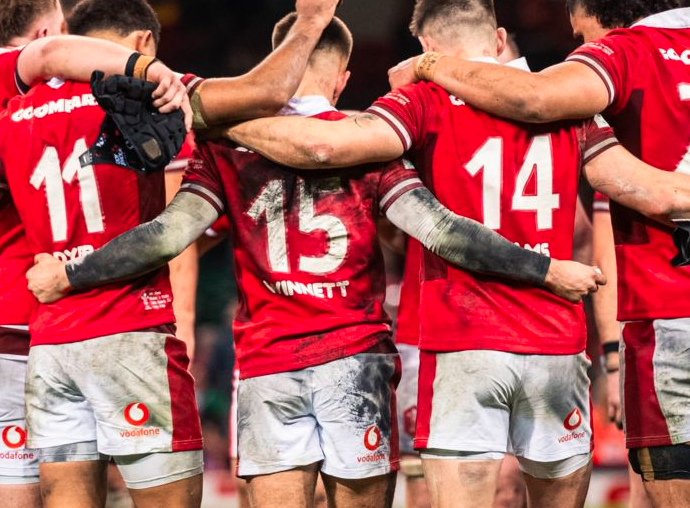Nigel Walker, the Director of Rugby at the Welsh Rugby Union (WRU), gazes out of his office window onto Westgate Street and sees a senior men’s team that’s hit a rough patch—landing the Wooden Spoon for the first time in over two decades, marking only the second occasion in the Six Nations era where Wales has faltered in every game.
It’s not just the senior team feeling the strain. Regional teams are also struggling to make an impact, with only the Ospreys showing some promise. The under-20s, once a strong force, haven’t tasted success in the Six Nations since 2016, fading from contention since 2017.
Acknowledging these challenges, Walker admits, “We’re going through a tough time. No one’s shying away from that.”
The recent departure of seasoned players like George North signals the end of a golden era for Welsh rugby. This leaves Wales with a squad, some of whom, according to their coach, are still finding their feet at this level. This raises an important question: Did Welsh rugby focus enough on nurturing future talent, or did it dwell too much on past successes?
Walker notes, “Ideally, we wouldn’t find ourselves in this position, losing so much experience within such a short time.” He highlights the departure of key players like Alun Wyn Jones, Justin Tipuric, Dan Biggar, and now North within a year, emphasising the need for better management.
Warren Gatland’s return saw a deliberate shift towards youth—a bold move, given that experience can’t be replaced. Despite the disappointments of the Six Nations, Walker supports Gatland’s strategy of focusing on younger players.
Since taking up his role at the WRU, Walker has played a key part in securing professional contracts for Wales’ elite women players and in efforts to address systemic issues, such as the ‘Elite Domestic Competition’ aimed at nurturing young talents.
Rob Howley’s role as a link between senior and under-20s teams highlights a commitment to strengthening the development pipeline. Walker stresses the importance of investing in regional academies, saying that success requires a comprehensive approach—not just survival but swift progression towards fulfilling potential.
However, there’s the reality of financial constraints. The regional teams are operating on reduced budgets, making it challenging to invest in tomorrow’s talent while dealing with today’s issues. Yet, Walker insists that necessary changes were made to ensure the sustainability of professional rugby in Wales.
While getting everyone on the same page remains a challenge, Walker believes that tough times can spark positive change. As Welsh rugby grapples with its current situation, there’s a shared commitment to achieving success at all levels.
Though the road ahead may seem tough, Walker remains optimistic: “If we get our structures aligned and adequately fund the regions, success is achievable.” Despite the current gloom, there’s hope—rock bottom can be the catalyst for a determined comeback.

















